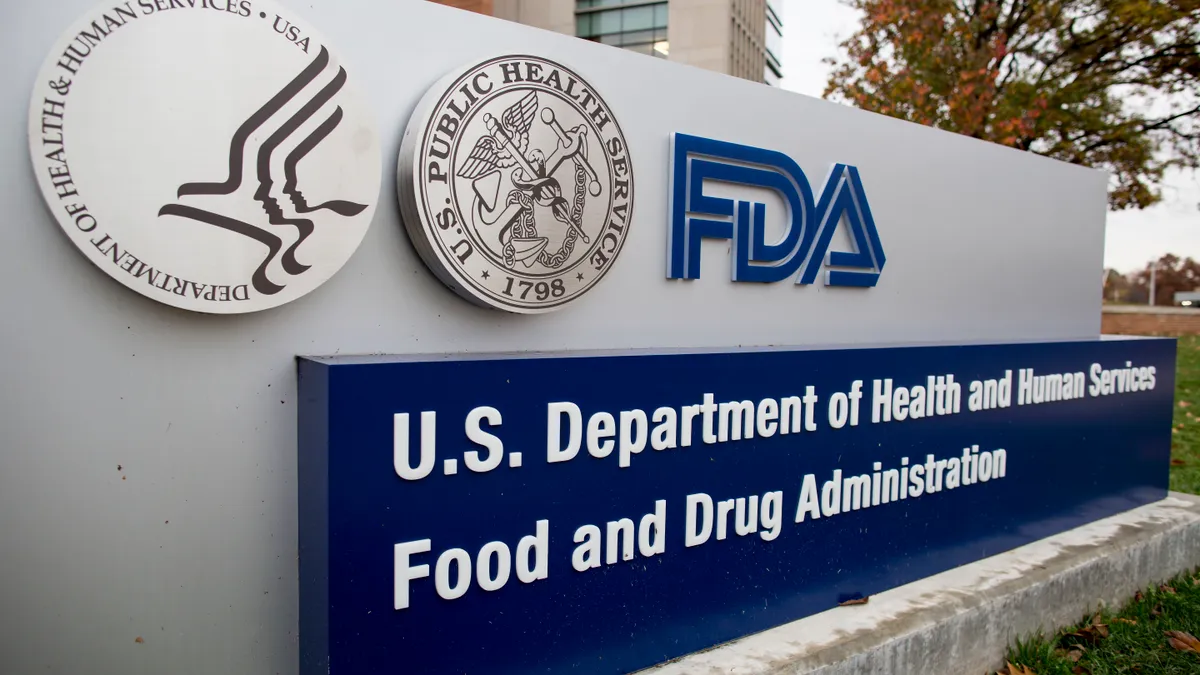Dive Brief:
-
FDA has begun allowing patients to self-collect samples for novel coronavirus swab tests, after it considered findings from a study by UnitedHealth Group in partnership with the Bill & Melinda Gates Foundation, Quest Diagnostics, and the University of Washington.
-
In a statement posted Wednesday, UnitedHealth said a study of nearly 500 patients treated by its OptumCare subsidiary found self-administered coronavirus diagnostics are as accurate as those carried out by clinicians.
- UnitedHealth released the statement shortly after FDA and CDC changed their guidance to allow onsite self-collection of samples from the nostril and mid-nose.
Dive Insight:
The earlier guidelines for COVID-19 swab testing in the U.S. required healthcare professionals to take samples from the nasopharynx, which is located at the back of the nasal cavity, or from the back of the throat. Nasopharyngeal specimens were, and remain, FDA’s preferred type of samples for tests for the novel SARS-CoV-2 coronavirus that is causing the COVID-19 outbreak.
However, in cases when a nasopharyngeal specimen is not available, the guidelines state it is now “acceptable” for tests to be done on specimens taken from the front part of the nostril and middle of the nasal cavity, locations which are known as anterior nares and mid-turbinate in anatomy.
FDA and CDC updated their guidance early this week without explaining the decision. According to UnitedHealth, the change was underpinned by data it generated from nearly 500 patients treated at facilities run by its OptumCare subsidiary in Washington state.
"This new approval from a study done by UnitedHealth Group and the Gates [Foundation] means that now self-collected nasal swabs will become available," said Vice President Mike Pence at Monday's White House press briefing. "We're going to be working through FEMA with governors around the country to make sure and distribute those methods, as well as the swabs or any other supporting materials, and get those into this vast array of labs that are now stood up around the country."
UnitedHealth is yet to share data from the study, which it prepared for publication in an undisclosed peer-reviewed journal, but has provided a glimpse at the top-line findings. The key takeaway is that self-administered tests detected SARS-CoV-2 in more than 90% of positive patients, suggesting they are as accurate as diagnostics that use samples collected by clinicians.
By switching from clinician-collected to self-administered tests, UnitedHealth contends healthcare systems can alleviate the supply strain they are feeling from the fast-rising number of patients who need coronavirus diagnosis and treatment.
The collection of a nasopharyngeal specimen requires a healthcare professional to put on personal protective equipment (PPE) and insert a swab deep into the nasal cavity. As such, the process uses up PPE and time, two resources that are in short supply for providers contending with the COVID-19 pandemic. Self-testing stands to reduce PPE use and the workload of clinicians.
Companies including Carbon Health, Everlywell and Nurx had hoped to eliminate the need for people with suspected cases of COVID-19 to interact with healthcare professionals to get diagnosed. The plan, which some companies began to put into effect last week, was to work under FDA's emergency use authorization guidelines to make at-home tests available to the public.
However, FDA put a stop to the at-home rollout late last week with a statement about “unauthorized fraudulent test kits that are being marketed to test for COVID-19 in the home.” The agency updated a Q&A to clarify that its coronavirus testing guidelines “do not apply to at-home testing, including self-collection of samples to be sent to a clinical laboratory.” In response, Carbon Health, Everlywell and Nurx paused their plans for home testing.










